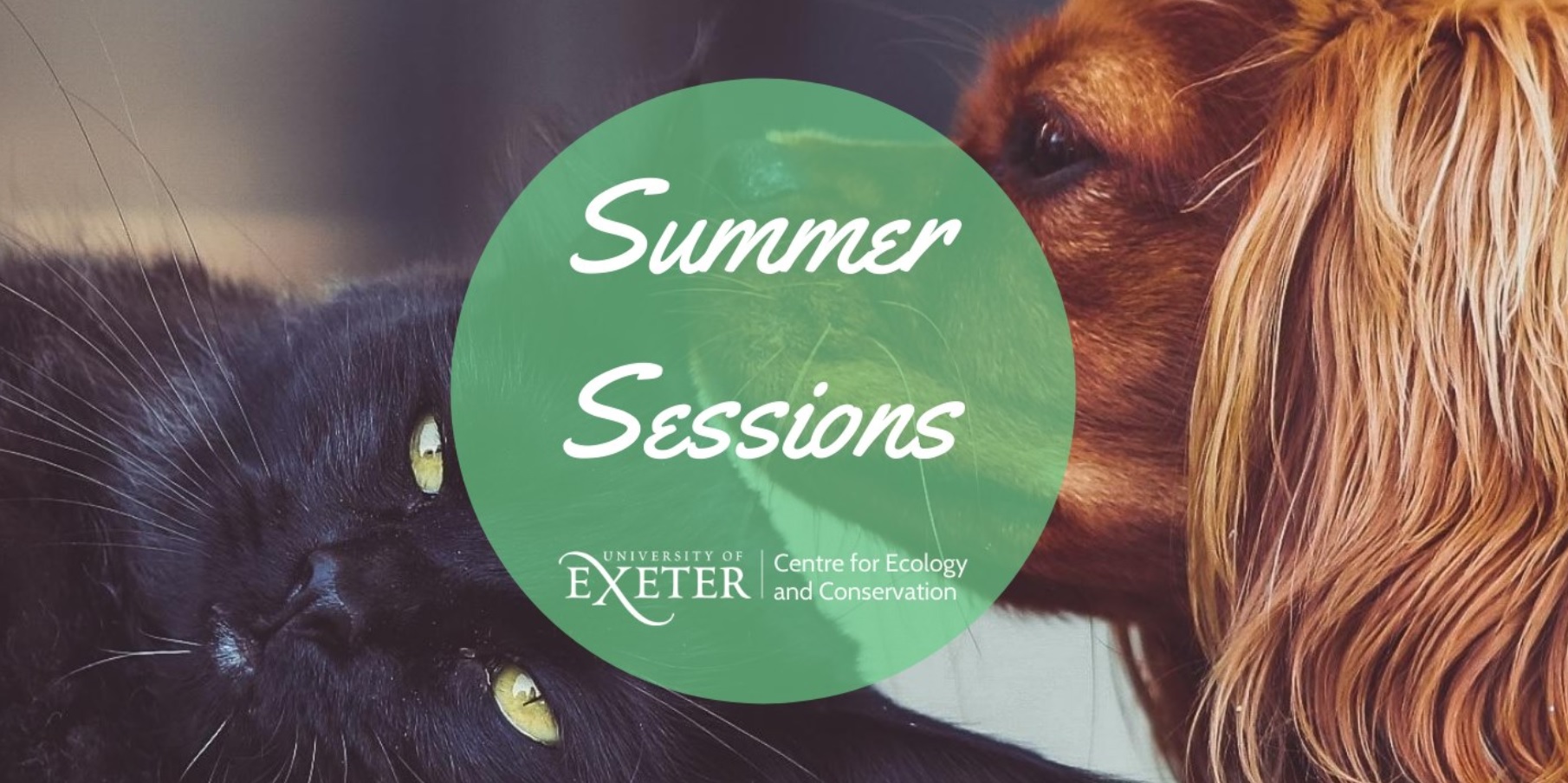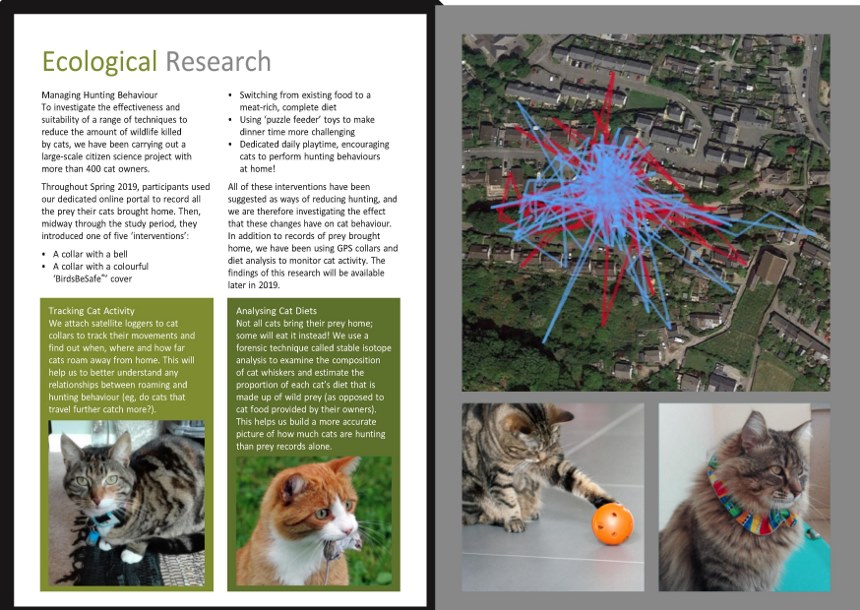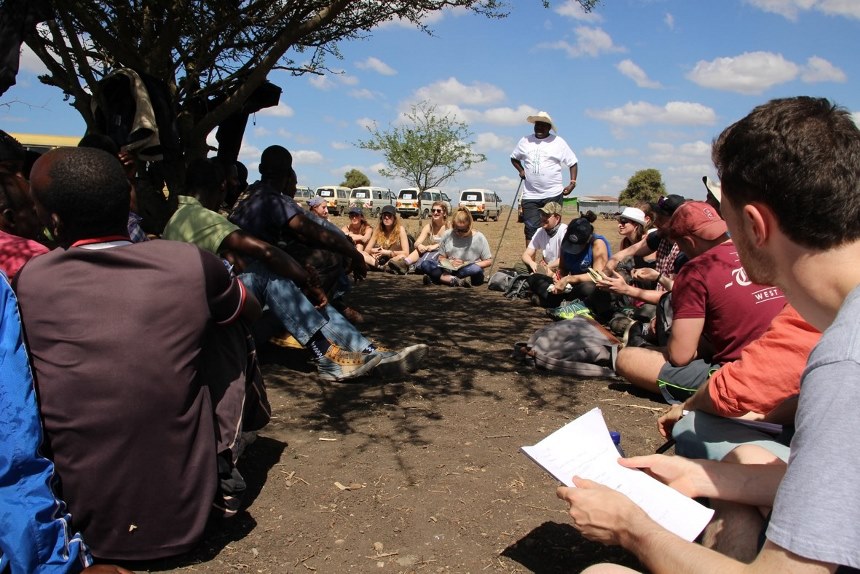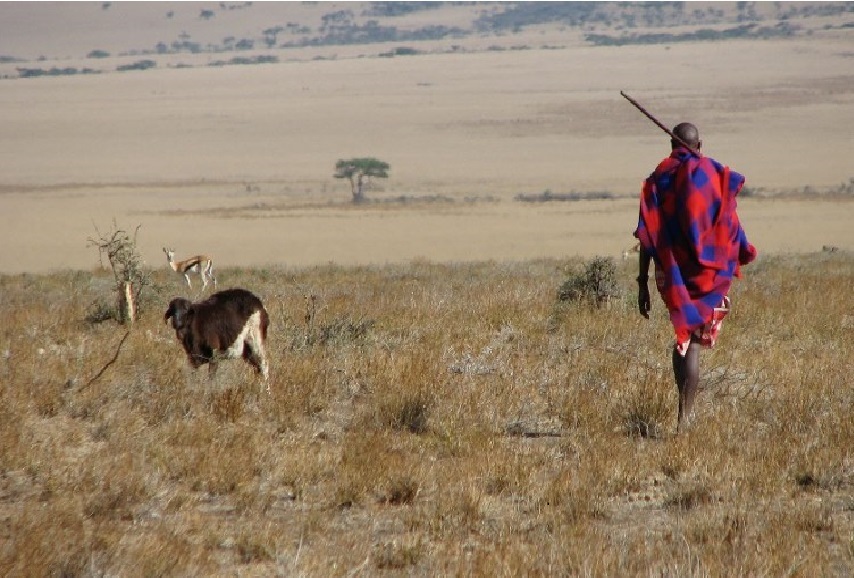
Welcome to Week 6 of our Centre for Ecology and Conservation Summer Sessions. Cats and dogs are some of the world’s most impressive creatures in the wild and adorable companions in our homes! Penryn’s Centre for Ecology and Conservation teaches the Biosciences undergraduate and MSc programmes, and our staff and students learn about and research cats and dogs all over the world, including close to home. Here we’re sharing some of their experiences working with wild and domesticated cats and dogs, including a recording of a live chat with our scientists in Penryn and Kenya, who try to conserve lions in places where they live side by side with humans.
Webinar and Q&A – Lions and the Maasai
We often see images of lions proudly surveying the open savannah, and sadly we sometimes read reports about these amazing animals being killed by local people. Lions and humans living side by side is a reality in many parts of Africa, yet, it’s less common to hear the story of the farmers who share their land with the lions, and may well lose their cattle to lions. Inspired by teaching on our MSc field course to Kenya, Dr Tom Currie began working with PhD student Enoch Ontiri to understand why lions and humans sometimes come into conflict. Hear what they have to say about how helping communities to protect their cattle could help both lions and humans, and how community engagement in conservation can protect wildlife and improve lives.
Posted by University of Exeter Centre for Ecology & Conservation on Friday, 7 August 2020
Cats at Home
Cats provide millions of us with companionship, amusement, and their unique brand of indifferent affection. Cats are also still kept, especially in rural areas, to keep rats and mice out of our houses. However, the same hunting prowess that makes cats helpful allies might also be a problem, as ‘outdoor’ cats can kill wild birds, mammals, amphibians and reptiles. Aside from the unpleasantness of dead and half-dead animals being brought through the cat flap, wildlife organisations and cat owners are concerned that domestic cats may be contributing to national declines in small bird populations. Read what BBC Wildlife Magazine has to say about our research on this here.
Dr Sarah Crowley and PhD student Martina Cecchetti are leading a research project to reduce the number of birds caught by cats, and to find out how cat owners could be encouraged to help. Read more on the project and watch the video below…




https://www.facebook.com/UniExeCEC/videos/759327068166828/
Living with Lions

Ever wonder what it’s like to live alongside wild lions? Hear from PhD student Enoch Ontiri about some of the difficulties that can arise for farmers and lions when they share the same land, and his innovative solutions. The Natural Selection Podcast is run by students to bring listeners cutting-edge research from the Centre for Ecology and Conservation.
You can also read about Enoch’s research, which finds that Maasai farmers only kill lions when they attack livestock.
Our MSc students learn about the interactions between farmers and wildlife as part of their fieldcourse to Kenya. Read about their experience here.
Dog-eat-dog

Climbing the social ladder is a ruff business for dogs, new research shows. The Centre for Ecology and Conservation is world-renowned for its research on social behaviour in wild animals, and now scientists have branched out into domesticated dogs. Read about how dogs learn where they stand in the pecking order, and avoid fighting over food and mates here.
Diseases that we share with our dogs

Guinea worm is a horrible disease that used to affect millions of people in Africa and Asia, and is now almost eradicated. However, it’s recently been realised that Guinea worm lives in dogs as well, and that dogs can transmit the disease to humans. Our students and staff have been studying free-ranging domestic dogs in Chad and Ethiopia to find out how dogs catch Guinea worm, and how we can eradicate the disease for good. You can read PhD student Jared Wilson-Aggarwal’s take on the project, or visit the project’s home page. Warning, some of the photos might make you shiver!
Hungry Lynx
One of our final year undergraduate field courses goes to the Yukon Territory in Canada. It’s a fantastic opportunity to learn about one of the most beautiful and enigmatic cats on the planet, the Canada lynx, and understand the delicate balance between lynx and their prey, the snowshoe hare. In 2019 lynx were at the peak of their 10-year population cycle, and one seemed so desperate to find hares that it lost any fear of humans and walked straight past one of our students. Luckily Jodie had her phone to hand and captured the video below! You can find out what else we do on the field course here.
If you want to see what it’s like to hunt a snowshoe hare, try playing Where is the Hare?, a game designed by former undergraduate and recent MByRes student Charlotte Jeffers, to study camouflage in a changing climate.
https://www.facebook.com/UniExeCEC/videos/632667500706003/



